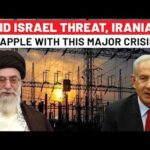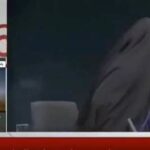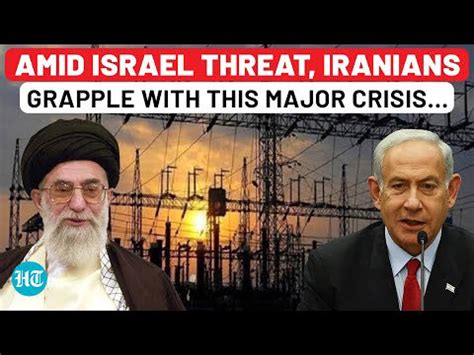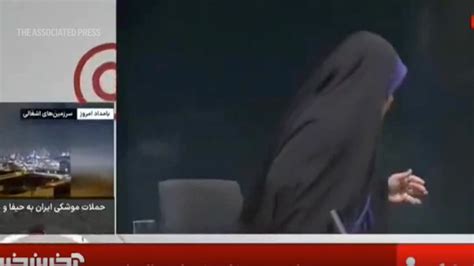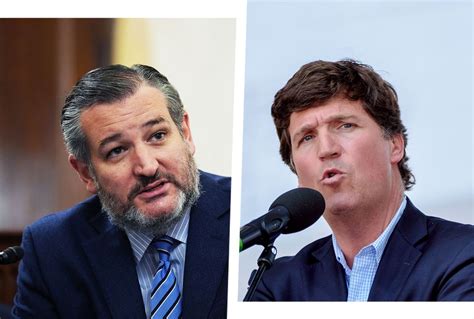
A heated exchange erupted between commentator Tucker Carlson and Senator Ted Cruz over the factual accuracy of information concerning Iran, culminating in Carlson accusing Cruz of falsehoods. The confrontation, stemming from Cruz’s stance on the Iranian regime following the country’s attack on Israel, ignited a public dispute broadcast on Carlson’s online platform.
The dispute centered around Cruz’s characterization of the Iranian Revolutionary Guard as a terrorist organization and his broader views on the Iranian government. Carlson challenged Cruz’s perspective, leading to a highly charged discussion where Carlson questioned Cruz’s integrity and the accuracy of his statements. The exchange highlighted a significant divergence in viewpoints regarding U.S. foreign policy toward Iran and the appropriate response to recent geopolitical events in the Middle East.
The argument began when Cruz appeared on Carlson’s show to discuss the recent Iranian attacks on Israel. Cruz asserted the need for a strong response against the Iranian regime, emphasizing their support for terrorism and their destabilizing influence in the region. He reiterated his long-standing position that the Iranian Revolutionary Guard Corps (IRGC) is a terrorist organization and that the U.S. should treat them as such.
Carlson, however, challenged Cruz’s assertions, questioning the factual basis of some of his claims and accusing him of distorting the reality of the situation. He specifically took issue with Cruz’s rhetoric regarding the IRGC, suggesting that Cruz was exaggerating their role in global terrorism to justify a more aggressive U.S. policy toward Iran.
“You’re calling f!,” Carlson stated during the interview, expressing his disbelief at Cruz’s statements. The exchange grew increasingly tense, with both men interrupting each other and raising their voices. Carlson accused Cruz of pandering to certain political interests and of not being forthright about the complexities of the U.S.-Iran relationship. Cruz, in turn, defended his position, arguing that he was simply stating facts and advocating for a necessary course of action to protect U.S. interests and allies.
The confrontation reflected a broader debate within conservative circles regarding U.S. foreign policy, particularly in the Middle East. While some conservatives advocate for a more interventionist approach, viewing Iran as a primary threat, others favor a more isolationist stance, arguing that U.S. involvement in the region has been counterproductive. Carlson has often voiced skepticism about foreign intervention, while Cruz has generally supported a more hawkish approach to foreign policy.
The public dispute between Carlson and Cruz underscores the divisions within the Republican party and the broader conservative movement on issues of foreign policy and national security. It also highlights the challenges of accurately assessing and responding to complex geopolitical events, particularly in a highly polarized media environment.
The fallout from the exchange was immediate, with commentators and analysts weighing in on both sides of the argument. Some defended Cruz’s position, arguing that he was accurately representing the threat posed by Iran and advocating for a necessary response. Others sided with Carlson, criticizing Cruz’s rhetoric as inflammatory and potentially dangerous. The debate played out across social media, with users expressing a range of opinions on the matter.
This incident is not the first time Carlson and Cruz have clashed on political issues. They have previously disagreed on topics such as the January 6th Capitol riot and the role of government in regulating social media. However, the intensity of this particular exchange, and the directness of Carlson’s accusations, marked a notable escalation in their public disagreements.
The exchange also brings to the forefront the ongoing debate about the role of media personalities in shaping public opinion and influencing political discourse. Carlson, with his large online following, has become a significant voice in conservative media, and his views often carry considerable weight with his audience. Cruz, as a prominent senator, also has a platform to influence public opinion and shape policy debates. The clash between these two figures highlights the power of media and politics to shape perceptions of complex issues such as U.S. foreign policy toward Iran.
The interview continued with Carlson pressing Cruz on specific details of his claims, demanding evidence to support his assertions about the IRGC and its activities. Cruz responded by citing various reports and assessments from government agencies and think tanks, arguing that they demonstrated the IRGC’s involvement in terrorist activities and its support for destabilizing forces in the region.
Carlson remained unconvinced, accusing Cruz of selectively citing information to support his pre-existing biases. He argued that Cruz was ignoring the complexities of the situation and failing to acknowledge the potential consequences of a more aggressive U.S. policy toward Iran.
The debate also touched on the broader history of U.S.-Iran relations, with Carlson questioning the wisdom of past U.S. interventions in the Middle East. He argued that these interventions had often been counterproductive, leading to instability and resentment that ultimately harmed U.S. interests. Cruz, however, maintained that the U.S. had a responsibility to confront Iran’s aggression and protect its allies in the region.
As the interview drew to a close, the tension between Carlson and Cruz remained palpable. While they both expressed a desire for a peaceful resolution to the conflict in the Middle East, they clearly disagreed on the best way to achieve that goal. The exchange served as a stark reminder of the deep divisions within American society regarding foreign policy and the challenges of navigating complex geopolitical issues.
The implications of this public spat extend beyond the immediate disagreement over Iran. It reflects a broader struggle within the conservative movement to define its identity and its role in American politics. The rise of figures like Carlson, who often challenge traditional conservative orthodoxy, has created new tensions and divisions within the movement. The clash between Carlson and Cruz is just one example of these tensions playing out in public.
Moreover, the exchange underscores the importance of critical thinking and media literacy in today’s information environment. With so much information available from various sources, it is essential to be able to evaluate the credibility of those sources and to distinguish between facts and opinions. The debate between Carlson and Cruz highlights the challenges of doing so, even for highly informed individuals.
The controversy surrounding the Carlson-Cruz exchange underscores the delicate balance between national security concerns and the potential for escalating international tensions. As the U.S. navigates its relationship with Iran, it must carefully consider the potential consequences of its actions and strive to promote stability and security in the region. The debate between Carlson and Cruz serves as a reminder of the importance of engaging in thoughtful and informed discussions about these critical issues.
In the aftermath of the contentious interview, both Carlson and Cruz continued to address the issue on their respective platforms. Carlson reiterated his concerns about the potential for U.S. intervention in Iran, while Cruz defended his position and accused Carlson of misrepresenting his views. The debate continued to play out in the media, with commentators and analysts offering their perspectives on the matter.
The long-term impact of the Carlson-Cruz exchange remains to be seen. However, it is clear that it has further highlighted the divisions within the conservative movement and the challenges of navigating complex foreign policy issues in a polarized political environment. The incident serves as a reminder of the importance of engaging in respectful and informed dialogue, even when disagreements are strong.
The exchange between Carlson and Cruz underscores the complexities inherent in U.S. foreign policy decision-making, particularly concerning volatile regions like the Middle East. It reveals the diverse perspectives and deeply entrenched beliefs that shape the debate over how the U.S. should engage with countries like Iran, which are often viewed through a lens of suspicion and hostility. The public airing of such disagreements, while potentially divisive, can also serve as a catalyst for more informed and nuanced discussions about the challenges and opportunities facing U.S. foreign policy.
The incident also speaks to the changing landscape of media and political discourse. The rise of online platforms and independent media outlets has created new opportunities for individuals to express their views and challenge traditional narratives. Figures like Carlson, who have built large audiences through these platforms, wield significant influence and can shape public opinion in ways that were previously unimaginable. The clash between Carlson and Cruz highlights the power of these new media platforms and their potential to disrupt traditional political dynamics.
The core of the disagreement appears to stem from fundamentally different interpretations of the nature of the Iranian regime and the appropriate U.S. response. Cruz seems to advocate for a more assertive, confrontational approach, viewing Iran as an implacable enemy that must be contained through military and economic pressure. Carlson, on the other hand, appears to favor a more cautious and diplomatic approach, arguing that military intervention is likely to be counterproductive and that the U.S. should seek to de-escalate tensions through dialogue and negotiation.
These differing perspectives reflect broader debates within the foreign policy community about the effectiveness of different approaches to dealing with rogue states and the potential consequences of military intervention. There is no easy answer to these questions, and the debate between Carlson and Cruz serves as a reminder of the complexities involved in formulating U.S. foreign policy.
The public nature of the dispute also raises questions about the role of personal relationships in politics. Carlson and Cruz have known each other for many years and have often appeared on each other’s programs. The fact that they were willing to engage in such a heated and public argument suggests that the stakes involved in this issue are particularly high. It also underscores the intense pressure that politicians and media personalities face to take clear and decisive positions on controversial issues.
Ultimately, the Carlson-Cruz exchange serves as a valuable case study in the challenges of navigating complex foreign policy issues in a polarized political environment. It highlights the importance of critical thinking, media literacy, and respectful dialogue in fostering a more informed and nuanced understanding of the world. While the disagreement between Carlson and Cruz may not lead to any immediate changes in U.S. foreign policy, it is likely to continue to shape the debate over how the U.S. should engage with Iran and other countries in the Middle East.
The debate further exposed fault lines within the broader conservative movement regarding foreign policy, particularly towards the Middle East. Carlson’s perspective often aligns with a more isolationist or non-interventionist approach, questioning the efficacy and consequences of U.S. military involvement abroad. Cruz, conversely, typically espouses a more hawkish stance, advocating for a strong U.S. presence and assertive action to counter perceived threats from regimes like Iran.
This divergence reflects a long-standing tension within conservative thought, with different factions emphasizing varying priorities such as national security, economic interests, and ideological values. The Carlson-Cruz clash underscores how these differing viewpoints can lead to significant disagreements over specific policy issues, such as how to respond to Iran’s actions in the region.
Beyond the immediate policy implications, the incident also raises broader questions about the role of media personalities in shaping political discourse. Carlson, with his large and loyal following, wields considerable influence over public opinion, particularly within conservative circles. His willingness to directly challenge a sitting senator on matters of foreign policy highlights the growing power of media figures to shape the political agenda and hold elected officials accountable.
The exchange between Carlson and Cruz also underscores the challenges of communicating complex geopolitical issues to the public in a clear and accurate manner. The nuances of U.S.-Iran relations, the intricacies of the Iranian Revolutionary Guard Corps, and the potential consequences of different policy options are often difficult to convey in sound bites or simplified narratives. The Carlson-Cruz debate serves as a reminder of the importance of in-depth analysis and critical thinking when evaluating information about foreign policy issues.
The lasting impact of the Carlson-Cruz exchange may depend on how it resonates with the broader public and how it influences the ongoing debate over U.S. foreign policy. It is possible that the incident will further polarize opinions on the issue, making it more difficult to find common ground. Alternatively, it could spark a more nuanced and informed discussion about the challenges and opportunities facing the U.S. in the Middle East. Only time will tell how the events will ultimately shape the future of U.S. foreign policy.
The intensity of the exchange also brings to light the personal dynamics between the two figures. While they have often appeared cordial in past interactions, the Carlson’s direct accusation of falsehoods suggests a deeper level of disagreement and potentially a breakdown in their professional relationship. This personal dimension adds another layer of complexity to the analysis of the incident, raising questions about the motivations and intentions of each individual involved.
Moreover, the public nature of the disagreement raises questions about the appropriate boundaries of political debate. While robust and critical discussion is essential for a healthy democracy, there is also a need for civility and respect, particularly when addressing sensitive issues of national security. The Carlson-Cruz exchange highlights the challenges of striking this balance, particularly in an era of heightened political polarization and social media-driven outrage.
The core of the conflict revolves around differing assessments of the threat posed by Iran and the most effective strategies for mitigating that threat. Cruz appears to advocate for a policy of maximum pressure, including economic sanctions, military deterrence, and support for Iranian opposition groups. Carlson, on the other hand, seems to favor a more restrained approach, emphasizing diplomacy and de-escalation.
These differing perspectives reflect broader debates within the foreign policy community about the effectiveness of coercive measures versus diplomatic engagement. There is no consensus on which approach is most likely to succeed in dealing with Iran, and the Carlson-Cruz exchange underscores the complexities and uncertainties involved in making such decisions.
The incident also serves as a reminder of the importance of media literacy and critical thinking skills. In an age of information overload, it is essential to be able to evaluate the credibility of sources, identify biases, and distinguish between facts and opinions. The Carlson-Cruz debate provides a valuable opportunity to practice these skills and to develop a more nuanced understanding of the complex issues facing the U.S. in the Middle East.
The ramifications of the Carlson-Cruz exchange may extend beyond the immediate issue of U.S. foreign policy towards Iran. It could also have implications for the broader political landscape, potentially influencing the dynamics within the Republican Party and the conservative movement. The incident may further solidify the divisions between different factions and could lead to shifts in alliances and power structures.
Ultimately, the long-term significance of the Carlson-Cruz exchange will depend on how it is interpreted and utilized by different actors in the political and media spheres. It could serve as a catalyst for a more informed and constructive debate about U.S. foreign policy, or it could simply exacerbate existing divisions and contribute to a more polarized political climate. Only time will tell how the events will ultimately shape the future of American politics.
Frequently Asked Questions (FAQ)
1. What was the main point of contention between Tucker Carlson and Ted Cruz regarding Iran?
The primary disagreement stemmed from Cruz’s characterization of the Iranian Revolutionary Guard Corps (IRGC) as a terrorist organization and his broader views on the Iranian government’s threat level. Carlson challenged the factual basis of Cruz’s statements, accusing him of exaggerating the IRGC’s role to justify a more aggressive U.S. policy toward Iran. Carlson specifically accused Cruz of making false statements about the situation.
2. Why did Tucker Carlson accuse Ted Cruz of lying during their interview?
Carlson accused Cruz of lying because he believed Cruz was distorting facts about the Iranian Revolutionary Guard and Iran’s overall activities to support a predetermined political agenda. Carlson felt that Cruz was selectively using information and exaggerating the threat posed by Iran to justify a more interventionist U.S. foreign policy. He stated “You’re calling f!” as an expression of disbelief.
3. What broader issue does the Carlson-Cruz dispute highlight within the conservative movement?
The dispute underscores the divisions within the conservative movement regarding U.S. foreign policy, particularly in the Middle East. Some conservatives advocate for a more interventionist approach, viewing Iran as a primary threat, while others favor a more isolationist stance, arguing that U.S. involvement in the region has been counterproductive. Carlson typically aligns with the latter view, while Cruz generally supports the former.
4. How might the Carlson-Cruz exchange influence public perception of U.S. foreign policy towards Iran?
The exchange could further polarize opinions on U.S. foreign policy toward Iran. It might reinforce existing beliefs about the Iranian threat, depending on viewers’ pre-existing biases and affiliations with Carlson or Cruz. The public airing of these disagreements could also spark more nuanced discussions about the challenges and opportunities facing U.S. foreign policy in the Middle East.
5. What is the significance of this incident in the context of media personalities shaping political discourse?
The incident highlights the growing influence of media personalities, like Tucker Carlson, in shaping political discourse. With large online followings, these figures can significantly impact public opinion and hold elected officials accountable. The clash between Carlson and Cruz demonstrates the power of media to challenge traditional narratives and influence policy debates.
